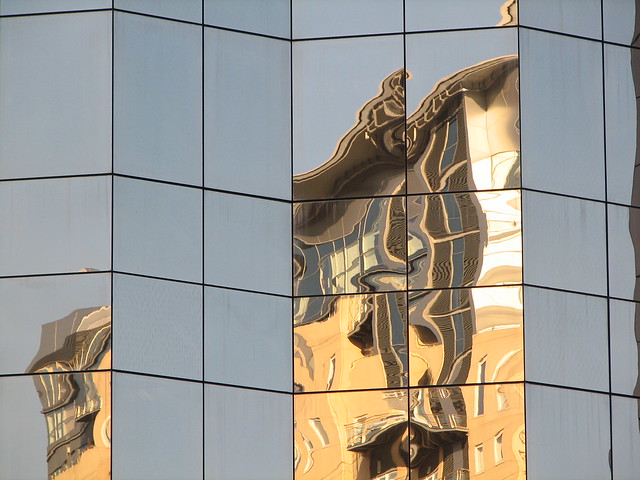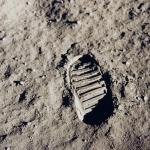
What We See in Our Own Reflection
We live in a world which discourages us from spending time in reflection.
Many of us are asked to think about something again and again each day. We focus on calculating, analyzing, arguing and convincing, solving problems. Our society values people who can find solutions, put together a workable plan, and put that plan into action.
Our view of reflection is something more like daydreaming than like practical thinking.
We assume people who take time to reflect are wasting that time. Our world is all about measurable results and anything which does not contribute to those results is wasted.
What is reflection? Some of us have not spent time reflecting for so long we have forgotten how to do it. Are there benefits of reflecting, reasons why it can be a helpful thing to do?
When we take time to reflect, what are we actually doing?
A reflection is what we see when we look in a mirror, a glass of water, or the windows of a building. Light and images are reflected back to us and we see them in new ways.
Even looking in a mirror at something familiar, like our own faces, shows us things in new ways.
Our own reflection has similarities to the reflections we see in mirrors and windows. Each of us has expectations and assumptions which shape how we understand the world in which we live. Reflecting is a way to help us recognize how our perspective has been shaped and see things in new ways.
Reflection helps us see past our own preconceived notions of what the world is like and see things more clearly.
Where do we begin? Can reflecting become a contemplative practice for us to follow?
How can we clear up our own view of the world?
Practicing Reflection
My earliest time of reflecting came from watching clouds in the sky.
I have developed other methods over time. There are times when listening to certain music, in certain ways, has help. Watching a fire in a fireplace or an outdoor campfire can work. Sometimes the waves of the ocean or a nice rain inspire my practice.
Sometimes meaningful conversations have sparked my reflection. Rocking chairs can be powerful tools for reflection.
The first reflection I can remember, though, happened while looking at clouds overhead.
Clouds’ ability to move and change their shapes helps distract me from my distractions.
It is not about reading them to determine what the weather is going to be. Clouds can talk to us without necessarily communicating scientific information.
There is just something reflective about lying on our backs in the grass looking up at the clouds passing overhead.
Our imaginations recognize things in the shapes of clouds and we reflect on what they all mean.
We reflect more clearly when clouds are not in a hurry, are not being driven by strong winds. Clouds float along and our thoughts float with them.
It can feel like we are losing our ability to watch clouds well as we gain responsibilities. We allow everything we need to do and what other people expect of us to get in our way and block our view.
It can be easy for us to forget about our practice of reflection.
There is less and less time for clouds or fires or rocking chairs as our lives fill up with things to do. We spend more and more time thinking or calculating and less time reflecting.
Clouds get transformed from sparks for our reflection into things which block the sun.
How Do We Build a Practice of Reflection?
We begin to practice reflection by remembering the experience of lying on our backs watching clouds. It was not a practice for which we scheduled a set amount of time each day. As we practiced reflecting with the help of the clouds, time seemed to stand still for us.
We took our time to reflect. Each image we saw reflected back to us grew into another, and then another. There was no limit to what we might see in our reflection.
Now we need to carve our schedules to allow time to reflect in the midst of responsibilities and expectations. We admit we need time for reflection but never seem to include it on our calendars. There never seems to be enough time to look up and watch the clouds.
Reflection is the mental equivalent of pausing to take a deep breath. We fill our lungs with fresh air, as much as we can, and let it back out into the world. Again and again we breathe in clean air and send what bothers us out into the air.
Our minds grow tired of analyzing and calculating. We let them breathe freely to clear the cobwebs out of the corners.
Where Can Reflection Lead Us?
We can get stuck in our analytical, rational thinking. Working hard to solve problems and devise answers, we become accustomed to trying to organize things. Our efforts to understand and find solutions can become overwhelming.
The power of reflection can help us see not everything is our responsibility. We are not required to exceed every expectation.
Our minds need time to watch fires or rock in chairs or look at clouds in the sky.
Some of the challenges we face will be beyond our ability to organize or understand. We may need to escape from the details and experience the power of reflection.
There is more to life than just what we can organize, control, and understand. Listening to the waves or the rain or the stillness opens us to what is beyond what we know.
What do we see when we lie on the ground looking up at the clouds in the sky?
Where do the flames in the fireplace take you?
What do the sounds of the rain or of the ocean spark in you?
What will we see in our own reflection today?
How can we practice reflection this week?
[Image by jess_star87]
Greg Richardson is a spiritual life mentor and coach in Southern California. He is a recovering attorney and a lay Oblate with New Camaldoli Hermitage near Big Sur, California. Greg’s website is StrategicMonk.com and his email address is [email protected].












